Most cats have their personality, that’s a given. They know what they want and you can’t change their mind easily. The same principle applies when it comes to food, especially with regard to unusual treats. If you wonder can cats eat cantaloupe? This is pretty much up to your cat to decide but yes, you may feed your cat cantaloupe for sure. However, remember to feed him only small portions and in moderation.
How Often Can Cats Eat Cantaloupe?
Feeding cantaloupe to your cat occasionally is safe for your pet’s overall health. It is a fruit loaded with beneficial vitamins and minerals. It is loaded with vitamin A, C and potassium. Cantaloupe also has high water content. Eating cantaloupe regularly for a human is a great way to boost hydration, but for a cat, only small amounts of added fruit are necessary, if at all. On excessively hot days, or during a time your cat refuses to drink, offering the cat some cantaloupe may offset any symptoms of dehydration.
Nonetheless, fruit is high in sugar, especially melons. The sweeter the melon, the higher the sugar content. Unfortunately, cantaloupe is high in sugar, and this sugar will break down to fat if not burned off during exercise. High sugar content in a cat is a fact that can turn out to be quite detrimental to your pet’s health.
Cats are not meant to have extra sugar in their diets; and added fruit can be a culprit. Cats can develop diabetes, weight gain and obesity if their diet is not adhered to. Just as a human needs to be mindful of sugar intake, so does their cat. Cats really do not have any reason to ingest sugar, so if you choose to offer your cat sugar, be mindful of the consequences.
Sweet treats offered once a week to your cat are fine in moderation. Do not give excessive sugary snacks to your cat on a regular basis. You cat could gain weight and also become a picky eater who refuses traditional food. You don’t want your cat to become a copy of Garfield, do you?
Also to keep in mind, small amounts of cantaloupe will hinder any digestive upset from occurring. Cantaloupe has a healing property that may soothe an upset stomach. The added fiber and water content of the melon may also help to remove any waste and toxins in your cat’s system that may be causing tummy troubles.
Nonetheless, if you notice your cat is feeling unwell after eating cantaloupe, you should steer clear of further feeding it to your pet. Melon affects everyone differently, and every cat digests human food differently. One cat may be able to tolerate the melon while another does not, so you must take into account the preferences of your particular cat before offer cantaloupe.
Bear in mind that some cats might utterly relish cantaloupe treats, whilst others might turn their back on it without having any second thoughts on the matter. So, if your cat refuses it at once, that means his/her mind is made up. You should give up. Never force feed a cantaloupe to your cat. Cats do not need this fruit for survival. Your cat should be able to choose whether or not to enjoy the treat.
What Parts of The Cantaloupe Should I Feed to My Cat?
If you wish to spoil your pet cat with this sweet, flavorful fruit, you should peel off the skin first. You do not want your pet to choke on the rough skin. The outer shell/skin of the cantaloupe should not be eaten by humans or animals. The shell is too rough to chew, swallow, and digest. If you cat has eaten his rough shell, call you vet to ensure you know which symptoms of choking or intestinal blockage to look for.
Also take the seeds out of the melon, as they can turn out to be quite harmful to your pet’s digestion. After having done this, you can slice the inner melon and serve your cat some cantaloupe pieces. You may also puree cantaloupe and mix in with your kitty kibble as a treat. After offering small bites, or as a puree, your job is done here! Now it’s up for your pet to decide if the treat is appealing enough to his taste or not. Cats can be quite picky sometimes.
Cantaloupe Benefits to Animals
Studies have shown that intake of cantaloupe phytonutrients can improve insulin and blood sugar metabolism. Furthermore, cantaloupe extracts have been shown to reduce oxidative stress in the kidneys of animals with diabetes. This means that it improves insulin resistance in diabetic animals.
Why do Cats Love Cantaloupe
Cats are carnivores as they would simply devour any meat you would feed them with, whether it is chicken or fish, they will get on it in an instant. That is no surprise to any cat owner. However, sometimes they seem to be in the mood for having some fruit and vegetables treats on occasion or seem interested in the fruit your are enjoying. No harm in offering the fruit, but only if your cat insists.
Did you know that cats eat grass when they feel unwell? Besides grass, they will also chew on some strawberries, asparagus, cantaloupe and green beans. The roughage in grass and some veggies helps to clear any toxins from the digestive system and relives upset stomachs. Cats instinctually hunt out these foods to cure belly aches.
But their taste for sweet fruit is not determined by their craving for sweets, as some would think. They are not able to crave sweets simply because their taste is not equipped with the bud gene that distinguishes sweetness. Cats generally eat certain foods for specific reasons, designed by genetics and evolution purposes.
According to a study, the key to cantaloupe’s popularity among felines is the aroma it releases. The amino acids present in the cantaloupe release a flavor that might be the same as those present in meat, of course in much smaller quantities. And cats love meat, don’t they?
Another reason why cats are prone to enjoying other treats besides their regular meat meals could be because of the fact that the cat food found in the supermarket is filled with all kinds of carbohydrates and artificial flavors, which leads to the cats’ development of a wider preference when it comes to food. As most cats are fed processed foods, they have developed a taste for other unusual treats, including cantaloupe.
Conclusion
You should not worry if your cat loves cantaloupe, the good news is that if you feed it in moderation and seldom, it is completely safe for him to consume it. The bottom-line is that you should not let occasional treats replace your pet’s normal diet. If that happens, excess weight will become an issue in no time.
Related articles:
References:
http://www.catster.com/lifestyle/cat-health-human-food-not-safe-ask-a-vet
http://feline-nutrition.org/the-blogs/cats-and-cantaloupe-a-method-in-their-madness
http://farmersalmanac.com/blog/2015/08/03/why-does-my-cat-like-cantaloupe/
http://www.mercurynews.com/animal-life/ci_25935480/cantaloupe-loving-cat-isnt-alone

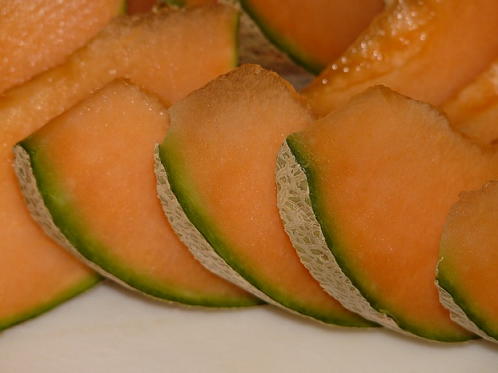
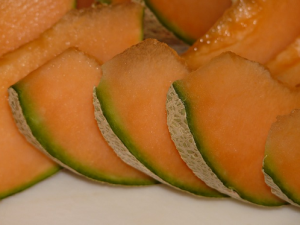

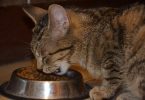


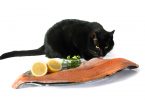
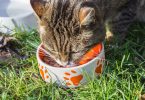
Leave a Comment